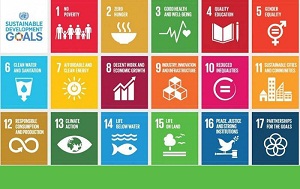 There is no doubt that education occupies a key place in the United Nations 2030 Sustainable Development Agenda and is vital to fulfilling the Sustainable Development Goals (SDG).
There is no doubt that education occupies a key place in the United Nations 2030 Sustainable Development Agenda and is vital to fulfilling the Sustainable Development Goals (SDG).
For a country such as Cuba, where education (free, mandatory, and universal) is a fundamental pillar of its social system, and which has sent its teachers and professors to offer solidary help to peoples across the world, issues like illiteracy and access to schooling have not been a problem since the early days of the Revolution.
“Cuba has been making progress toward achieving all the (2030 education) goals,” according to Dr. Margarita McPherson Sayú, deputy minister of Education, “We have already achieved many goals from a quantitative and contextual point of view, and must therefore work harder to raise the quality of education.”
Education is present, in one way or another, in each one of the 17 Sustainable Development Goals, and is a vital tool to ensuring that these are fulfilled at a global level.
In particular, the fourth objective (which features targets goals) includes new and more demanding tasks for both countries and international organizations.
For the first time, the need to produce relevant and effective results is being voiced in the global discussion on inclusive education.
For Cuba this means, “We must modify teaching methods and seek to achieve higher quality and more equitable education,” stated the Deputy Minister.
Within the Cuban system, schooling is obligatory for all children, regardless of gender, starting from early childhood through ninth grade.
This policy falls in line with the 2030 Education goals and is evidence of the political will of the state to provide equitable, quality, respectful ,and sustainable education for all.
“Our work to ensure that education reflects the true sense of comprehensive training with a broad vision, is very important,” stated Dr. McPherson Sayú.
Immersed in a third cycle of educational reform, the Ministry of Education is focused on the objectives, substantive processes, and targets in place, while at the same time taking steps to fulfill the SDG.
In this sense the Deputy Minister stated that “With regard to fulfilling the 2030 Agenda, we are focusing on four key areas: raising the level of learning; students’ socio-emotional skills; civic and citizenship education; and social inclusion. These are aspects that we must address if we want to work toward achieving these goals.”
Although the deadline for the SDG and 2030 Agenda is 12 years away, the value and importance of knowledge and education mean that all efforts toward improving education on a global scale cannot wait until tomorrow.
Teachers worldwide now face the challenge of modifying their work routines – from lesson plans, to ways of transmitting and assessing knowledge. Governments are tasked with creating sustainable and equitable education systems, while it is up to society to put an end to inequality which continues to act as a barrier to development.
Milestones in Cuban education post-1959
- 1961: National literacy campaign. Illiteracy drops to 3.9% after 707,000 people learn to read and write.
- 1975: First cycle of educational reform.
- 1987: Second cycle of educational reform.
- 2000: Launch of television program University for all, with educational courses for the entire population.
- 2001: Dr. Leonela Relys creates the Yo sí puedo (Yes, I can) literacy method. From 2002 to 2016, 10 million people from Latin America, the Caribbean, Africa, Oceania and Europe learned to read and write through the program.
- 2011: Third cycle of educational reform.
- 2015: The first smart-classrooms appear in Cuba, equipped with a digital interactive white-board, tablets or laptops, wifi, servers and projectors.
(Sources: Ecured, Mesa Redonda, Granma, Cubadebate)